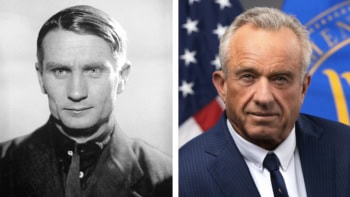Researchers at US universities are the best in the world, coming top in 35 out of 47 subjects with an "outstanding world lead" in the physical sciences. That's the conclusion of a report published last month by policy researchers at Leeds University in the UK and the Institute for Scientific Information in the US. They examined the "impact factor" - the number of citations per paper - of work published by researchers in seven leading countries. The US dominates the ranking, with England coming second overall, followed by Canada, Australia, France, Germany and Japan. However, the survey did not cover smaller nations, such as Switzerland, Sweden and Denmark, which always perform well in such surveys.
Germany has a much less even pattern of citation than the US or England, with strengths in certain core fields, including physical sciences, maths and engineering, and weaknesses in economics and social science. France also performs well in engineering – despite a relatively modest output of papers – and is strong in applied maths and physics.
When the subjects are grouped into 13 “superclusters” of similar disciplines, the authors found that England comes second or third in ten of the 13 areas. England excels in biological and pre-clinical sciences, where it lies only just behind the US. It is also strong in the physical sciences – defined as physics, chemistry and materials science – coming consistently third, just behind Canada. The one area where England scores poorly is engineering, where it trails below the world average well behind France and Germany.
The study was commissioned by the Higher Education Funding Council for England, which spends £804m a year on research in English universities. Most of the money goes to pay for academic salaries, laboratories, libraries and major pieces of equipment. Funding for specific projects comes from the UK’s research councils. The council is now asking English universities whether the results of the survey should be used to channel more money into under-performing areas or whether it should be used to boost existing strengths.
Citation surveys like this are controversial, and were not used by HEFCE when it last monitored the quality of UK research in 1996 ( Physics World January 1997). However, Sir Robert May, chief scientific adviser to the UK government, points out in his introduction to the survey that the latest results are similar to those in a separate analysis carried out by the Office of Science and Technology last year ( Physics World March 1997).



